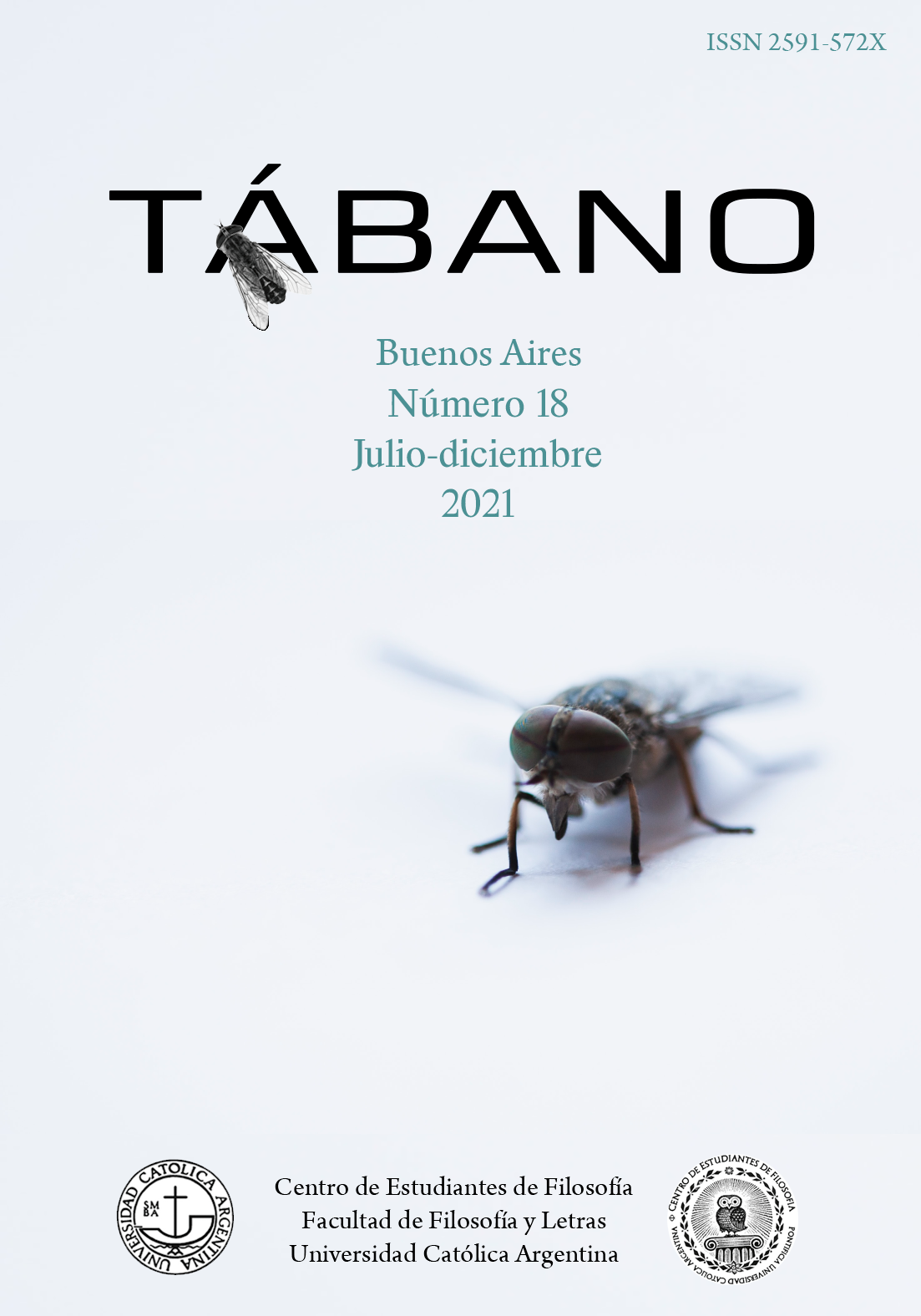La hospitalidad en Homero y en Génesis 18-19
DOI:
https://doi.org/10.46553/tab.18.2021.p115-122Palabras clave:
Hospitalidad, Homero, Abraham, Lot.Resumen
El trabajo propone una reflexión sobre la importancia de la hospitalidad en los textos homéricos y en el libro del Génesis 18-19. De los ejemplos analizados en la Ilíada y Odisea se concluye que la costumbre en cuestión era central para los antiguos, al punto de construir lazos férreos entre el anfitrión y el huésped que continuaba en sus descendientes. El libro del Génesis también ofrece ejemplos en los que el buen recibimiento de un extranjero es recompensado por Dios y la agresión a éste, severamente castigada.
Descargas
Citas
Allen, T. (ed.) (1979). Homeri opera. Editio altera. Oxford: Clarendon.
Benveniste, E. (1983). Vocabulario de las instituciones europeas. Madrid: Taurus Ediciones.
Chantraine, P. (1999). Dictionnaire étymologique de la langue grecque. Paris: Klincksieck.
Frenkel, D. (2014). La presencia del mundo griego en El Testamento de Abraham. Anales de Filología Clásica, n. 27 (11), pp. 49-60.
Gift, K. (2012). Sarah´s Laughter as Her Lasting Legacy: An Interpretation of Genesis 18: 9-15. En MJUR. Monmouth: Monmouth Coe College Press, pp. 99-110.
Gyxan, M., D. (2007). El intercambio de dones en el mundo griego: reciprocidad, imprecisión, equivalencia y desequilibrio. Gerion, n. 25, pp. 111-126.
Gould., J. (2001). Essays in Greek Literature and Culture. Oxford: Oxford University Press.
Henry, R., M. (1906). On Plants of the Odyssey. The Classical Review, n. 20 (9), pp. 434-426.
Hogan, J. (1976). The Temptation of Odysseus. Transactions of the American Philological Association, n. 106, pp. 187-210.
Hopman, M. (1976). Narrative and Rhetoric in Odysseus´ Tales to the Phaeacians, American Journal of Philology, n. 133 (1), pp. 1-30.
Levine, N. (2006). Sara/Sodom: Birth, Destruction and Synchronyc Transaction, SAGE Journals, Vol. 31, n 2, pp. 131-146.
Mondi, R. (1983). The Homeric Cyclopes: Folktale, Tradition and Themes. Transactions of the American Philological Association, n. 113, pp 17-38.
Monro, D & Allen, T. (eds.) (1957-1959). Homeri opera. Editio tertia. Oxford: Clarendon.
Pantella, M. C. (1993). Spinning and Weaving: Ideas of Domestic Order in Homer. American Journal of Philology, n. 114 (4), pp. 493-501.
Pausanias (1933). Description of Greece, vol III. Londres: Harvard University Press.
Race, W., H. (1993). First Appearances in the Odyssey. Transactions of the American Philological Association, n. 123, pp. 79-107.
Safren, J., D. (2012). Hospitality compared: Abraham and Lot as Hosts, pp. 157-178. En D. Lipton (ed.), Universalism and Particularism: essays in memoryof Ron Pirson. Atlanta: Society of Biblical Literature.
Sheryock, A. (2012). Breaking hospitality apart: bad hosts, bad guests and the problem of sovereignity. The Journal of the Royal Anthropological Institute, n.18, pp. 20-33.
Wabyanga, R. K. (2021). The Destruction of Sodom and Gomorrah Revisited: Military and Political reflections. Old Testament Essay, n. 28 (3), pp. 847-873.
Webber, A. (1969). The Hero tells his Nome: Formula and variation in the Phaeacian episode of the Odyssey. Transactions of the American Philological Association, n. 119, pp. 1-13.
Descargas
Publicado
Cómo citar
Número
Sección
Licencia
Derechos de autor 2021 Diana Frenkel

Esta obra está bajo una licencia internacional Creative Commons Atribución-NoComercial-CompartirIgual 4.0.



